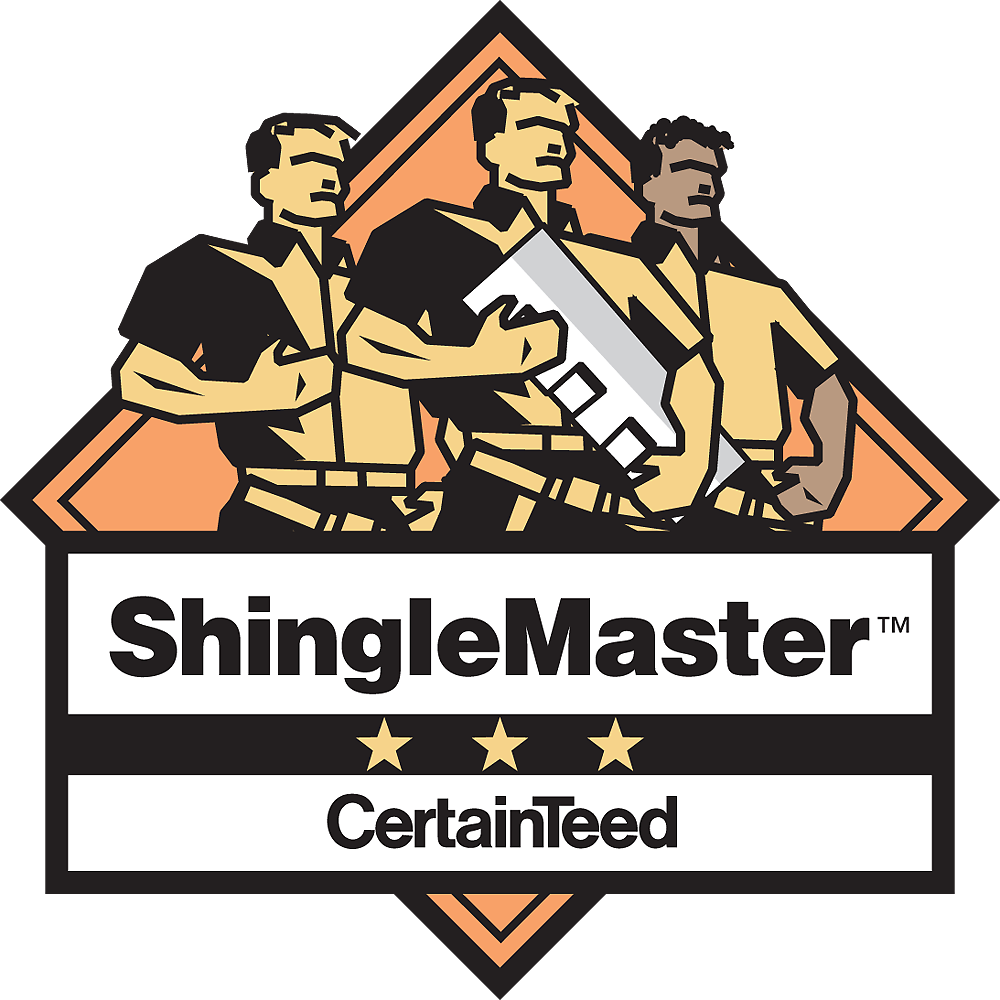Need a New Roof or Repairs: 4 Questions You Should You Ask?
Sometimes, roofing projects can spring up by surprise. In those cases, when time is of the essence, you may not be able to spend the amount of time you’d like researching roofing contractors and their bids. Say, for instance, you get three proposals from three different contractors. Two of the bids are almost the same but the third is substantially lower. Most of the language in the lower-priced proposal consists of the contractor’s disclaimers, exclusions and limitations of liability, and the fee. Much of the information that will have a direct effect on the longevity and ease of maintenance of the new roof is not spelled out well in the proposal. But then you think to yourself that this will look really good on the bottom line when top management sees how much money you saved on the project by choosing this roofer. The lowest bidder doesn’t always mean shoddy work. Before you sign on that dotted line, be sure you know what you are really getting.
Though it may not always be possible, the best way to get comparable bids is to determine all of the parameters before hand and tell the contractors what they’re expected to bid on. Drawing up a set of plans and specifications ahead of time will ensure the proposals are not only comparable, but they are what is required for the roof. If you don’t feel comfortable doing this, a specialist in roof consulting can help make sure the roof is designed specifically for a particular building and that the contractors meet the quality control and experience requirements before they even set foot in your door. The consultants should know the way to best address all the different factors that enter into a roof design.
With or without a consultant, there are some important questions to ask the contractor before you accept his or her proposal.
1. Is the company licensed, bonded and experienced?
Ask if the company has a proper roofing contractor’s license — then make the contractor prove it. Accepting a contractor’s proposal without checking this vital piece of information can lead to disaster.
Ask what the bonding capacity is and the percentage of construction cost for the bond, even if bonding isn’t a consideration for that particular project. There are many reasons why contractors can’t get bonds, their limits are low or their percentage of construction costs are high. The most prevalent, however, is that the surety has been called in on prior projects and now views the contractor as a risk. If the percentage of construction costs for the price of a bond is more than about 2 percent, ask the contractor why.
Find out if the contractor has been involved in litigation of any kind in the last five years and, if so, ask what for. Litigation can happen for many reasons, not just for bad workmanship.
Inquire whether the name of the company or ownership has changed in the last five years and, if so, why. Have the owners of the company declared bankruptcy for this or any other company in the last five years? Disreputable contractors have a nasty habit of declaring bankruptcy, dissolving the company and starting under a new name, leaving their previous clients hanging out to dry.
You should always ask the contractor how many times they have put on a similar system in the last three years and on what type of buildings. Be sure the roofer has some experience installing a roof on a building similar to yours. Find out if the contractor is an approved applicator for the proposed system. For example, if you are in a central business district full of high rises, be sure that the contractor’s experience is not just mid-rise suburban buildings. Materials access and debris removal, for example, create special problems in densely packed areas that do not exist where there are large parking lots and empty loading docks. Get references — with names and contact numbers — on similar buildings with similar systems.
Finally, find out whether any company employees belong to roofing contractor or consultant organizations. This does not ensure a quality roof installation, but it does mean there is some commitment to the industry.
2. What is the contractor’s current workload?
You should know how many employees the company has and how many other projects the company will have going on simultaneously. Remember, though, bigger is not always better. A small company with an excellent crew may be better than a national company with a poor local group. It’s important to make sure that adequate staffing is available for the project. Ask the contractor how much of the work will be done by its own workforce and how much will be subcontracted or day labor. If the roofer is using day labor for anything more than just tear off or debris removal, then ask what specifically the day labor will be doing. Installation of the membrane and other more technical parts of the job should be done solely by the contractor’s own workers.
Determine whether the foreman on the job will be a working foreman or just a supervisor. A contractor that uses its foremen in strictly supervisory roles can better respond to emergencies or be more flexible if things don’t go exactly according to plan. If the foreman is also the person swinging the asphalt mop, that person may not be watching what the rest of the crew is doing and work may not be done as well.
3. What is the exact type of roofing system the contractor is proposing and exactly how will it be installed?
Be careful when the proposal says that the contractor will remove the roof to a “smooth, workable surface.” Does it mean the contractor is only going to vacuum gravel off the roof and re-cover it? Or is the smooth workable surface the structural roof deck? Be sure to ask the contractor about every piece of language in the proposal that isn’t specific.
If the contractor is planning to re-cover the roof — installing a new roof membrane over the existing one — ask if a moisture survey will be done to locate any existing wet materials. If the contractor hasn’t considered this, problems can result. First of all, if the contractor doesn’t plan to do a moisture survey, there’s no way to know for sure the roof is in good enough condition to be re-covered. Twenty-five percent of the total area to be re-roofed being in poor condition is the generally accepted cut off point between tear off and re-cover. Second, new roofing should never be installed over damp or wet materials. If the contractor has not located the damp areas in the existing roof, and installs a new roof over them, problems such as blistering, rusting fasteners and decking, blow offs, or other life-shortening defects, can occur.
The contractor should explain in detail the products proposed for the roof. Too often, the proposals name some generic type of roof membrane and nothing else. For example, the proposal might say, “two plies of modified bitumen membrane over perlite insulation” as the entire specification for the roof system. Quality between manufacturers can vary and what one roofer may be proposing may be an inferior brand of material. If the proposal does not call out the exact system to be installed, ask the contractor to clarify it. At the very least, the contractor should include the following:
The manufacturer of the roofing membrane.
The insulation manufacturer.
The number of plies and what kind of plies are being used if an asphalt based system.
The type of single-ply, thickness and whether the membrane is reinforced.
The type, number of layers and thickness of each kind of insulation proposed, and the total R-value.
How the insulation and membrane are to be installed. Ask if they are to be fully adhered including how and with which materials. If the roof is to be mechanically attached, ask with what materials and how far apart the fasteners will be. For a loose laid system, find out how everything is to be kept in place.
If the contractor is re-covering, are the materials compatible with the existing materials? This is especially critical for metal roofs. Ask the contractor what metal type, what type of accessories and what gauge. Be sure the same type of metal — aluminum, galvanized steel, stainless steel or copper — is proposed.
Does the contractor have the proper, current product approvals for the specific location? If so, what is the product approval number? Does the system meet FM requirements and what is the FM approval number?
Walk the roof with the contractor and look at unusual situations like ganged pipes, low door thresholds, strangely shaped objects and unusual edge conditions. Ask the contractor how flashings will be done. Find out what kind of metal penetration flashings are proposed. If the contractor mentions pitch pans or pitch pockets, ask for a revised proposal using something else. Pitch pans/pockets are the least expensive but also the least desirable way of waterproofing around a roof penetration. If not rigidly maintained, the pitch pan sealers tend to shrink or crack and pull away from the metal pan, leaving a direct line for water to enter the building.
4. What are the details of the warranty?
Is the warranty a manufacturer’s warranty or a contractor’s warranty? The contractor should provide at least two years on workmanship. For the manufacturer’s warranty, ask if it covers both materials and workmanship or is a materials-only warranty. Ask how long the warranty will be good for and if it is prorated over the life of the roof. Find out what the dollar limits are. Be sure to get a specimen copy of the proposed warranty.
Once all the details of the roof installation have been determined, it’s easier to compare the proposals. Make sure the contractors’ prices are based on the same scope of work. When the bids come in, be sure that you read the entire proposal carefully. For example, hidden in the back pages of the proposal, the contractor may try to deny any responsibility for leaks that happen after the roof is repaired. Now there is an issue you may want to ask about beforehand.
------------------------
Loveridge Builders, Denver, Colorado

.png)



